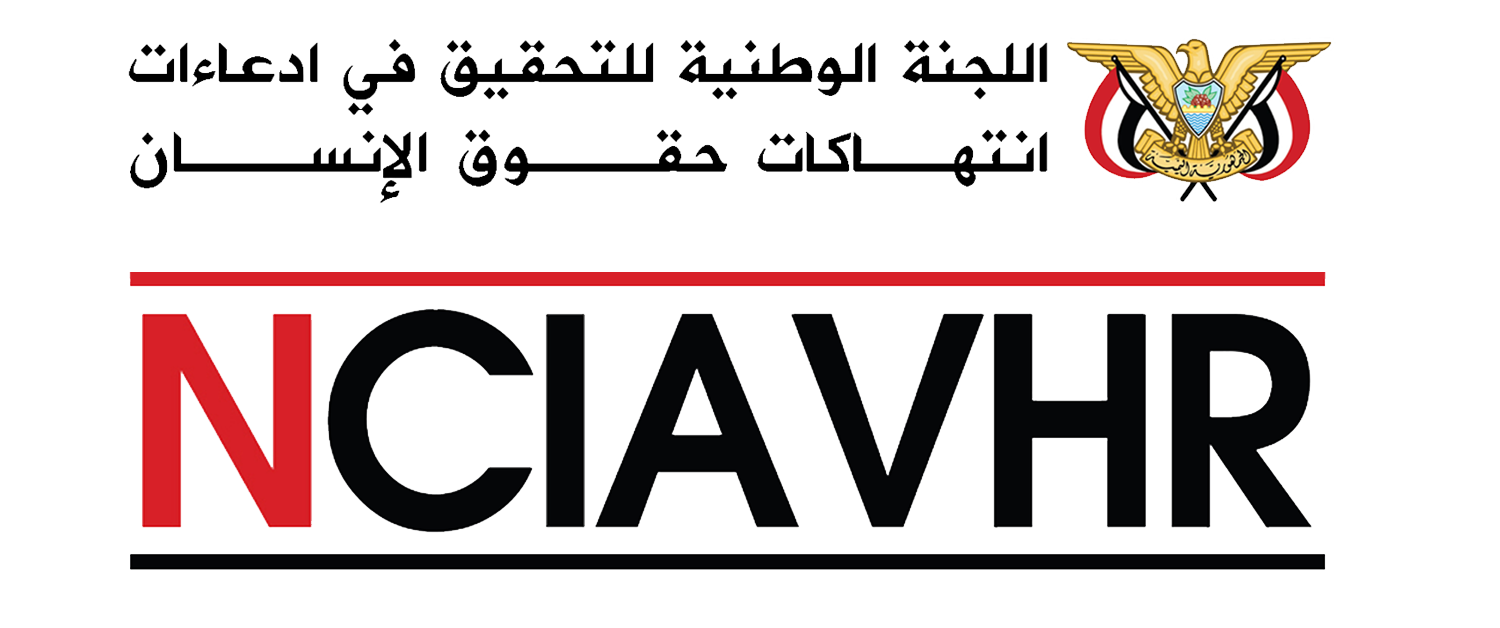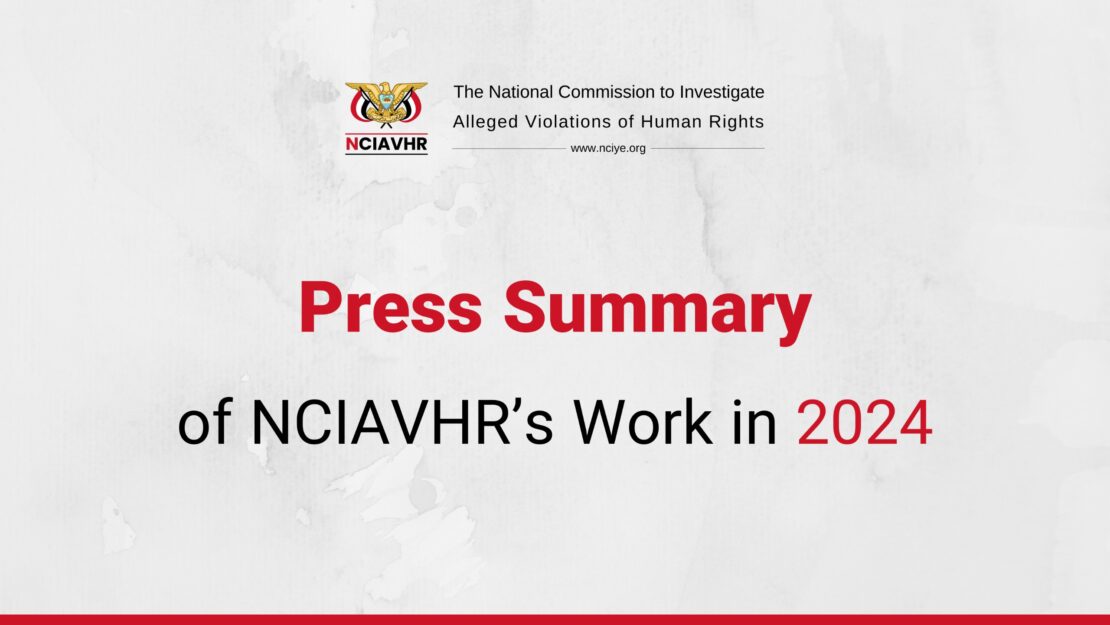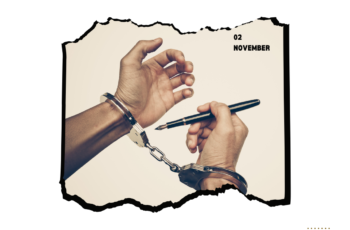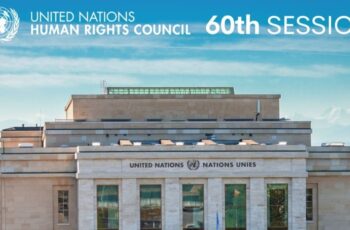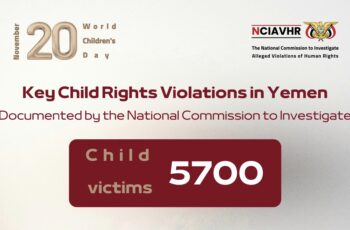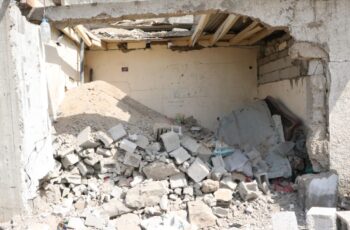NCIAVHR’s Press Summary for 2024
The year 2024 witnessed continued human rights violations across several Yemeni governorates, with civilian casualties resulting from non-compliance with the unofficial truce. Systematic violations were documented, including indiscriminate shelling, violence linked to military operations, the planting of anti-personnel mines, and harm to vulnerable groups such as children, women, and internally displaced persons (IDPs). Civilians were subjected to arbitrary detention, restrictions on civic space, and limitations on media freedoms.
Through its field investigations into alleged human rights violations committed by all parties to the conflict, the National Commission to Investigate Alleged Violations of Human Rights (NCIAVHR) documented its findings across Yemen throughout the year. The Commission maintained its commitment to keeping local, regional, and international audiences informed about the state of human rights in Yemen and the progress of its investigative work.
The Commission, in its press summary, reported that during 2024, it monitored and investigated 2,167 incidents of violations that occurred across various governorates at earlier times, affecting a total of 12,895 victims of all genders and ages. Among these, there were 564 incidents targeting civilians, resulting in 657 casualties (including 214 deaths, of which 27 were children and 6 were women, and 433 injuries, including 74 children and 52 women).
During the same period, the Commission concluded its investigations into the systematic planting of anti-personnel mines and improvised explosive devices, which caused 196 casualties (dead and injured), including 40 children and 11 women. It also investigated cases of arbitrary detention and enforced disappearance, affecting 624 victims.
Additionally, the Commission examined 19 incidents of targeting and damaging cultural, historical, and religious sites, 2 assaults on medical teams and facilities, 506 incidents of attacks and destruction of public and private property, and 16 incidents of assaults on schools, educational institutions, and their staff. The recruitment of 186 children under the age of 15 was also documented.
During the year, the Commission completed investigations into the detonation of 14 homes and documented 10,140 victims of forced displacement across 128 incidents that occurred at various times. It also recorded 81 victims of extrajudicial killings and 24 civilian casualties in a U.S. drone strike. In the course of these investigations, the Commission interviewed over 6,169 complainants and witnesses and reviewed more than 5,766 documents related to these violations.
To enhance direct investigations, the Commission’s Chairperson and members conducted 15 field visits to governorates such as Marib, Taiz, Dhale, Lahj, Abyan, and Shabwah. These visits focused on investigating anti-personnel mine incidents, attacks on residential neighborhoods, and the destruction of schools and healthcare facilities. The team also assessed frontline areas and the humanitarian conditions of civilians. Additionally, field visits were made to Al-Mahra, Hadramout, and Aden to examine human rights conditions, inspect prisons and detention centers, and assess the well-being of detainees.
During the field visits, the Commission assessed the conditions of 3,000 prisoners and detainees in 18 prisons and detention centers, including women’s sections in official prisons and detainees held on war-related charges. The Commission also listened to dozens of victims, their families, and eyewitnesses concerning various violations.
During the same period, the Commission’s field researchers conducted numerous field visits to remote and mountainous districts in the governorates of Al-Hudaydah, Al-Bayda, Ibb, Sa’dah, Dhamar, Sana’a, the Capital Secretariat, Amran, Al-Mahwit, and Hajjah. These visits included direct interviews with victims of documented violations.
As part of its collaboration and coordination with government entities and local authorities, the Chairperson and members of the Commission held separate meetings with the Ministers of Defense and Interior, the Minister of State and Governor of the interim capital Aden, the Governors of Taiz, Hadramout, and Al-Mahra, the Head of the Counter-Terrorism Agency, the Commander of the Second Military Region, as well as directors of police, military intelligence, political security, prisons, and military units across various governorates. These meetings focused on facilitating the Commission’s work, agreeing on mechanisms for responding to its inquiries, and implementing measures against individuals implicated in violations under their jurisdiction.
In 2024, the Commission organized 14 group hearings to assess the impacts of severe violations on both direct and indirect victims. These violations included landmine explosions, suppression of freedom of expression, forced displacement, and gender-based violence. Additionally, the Commission held specialized hearings for women and children in various regions.
As part of its collaboration with civil society, the Commission conducted 9 workshops, discussion sessions, seminars, and extensive meetings involving 154 civil society organizations working on human rights protection across the governorates. These events were held in Al-Mahra, Hadramout, Aden, Taiz, and Shabwah.
As part of its collaboration with international mechanisms, missions, and embassies focused on Yemen, the Commission held extensive meetings in 2024 with officials from the Dutch Ministry of Foreign Affairs and its diplomatic missions in Yemen and Geneva. It also met with ambassadors and diplomatic delegations from France, the United States, Norway, and the European Union, as well as representatives of the Arab Group, the United States, and the European Union in Geneva.
These meetings addressed opportunities for accountability, justice for victims, and the role of documenting human rights violations in fostering a fair, effective, and inclusive peace that ensures victims’ participation.
Additionally, the Commission met with the United Nations Security Council’s Panel of Experts on Yemen and the Joint Incident Assessment Team at its office in the interim capital, Aden, during the year.
The Commission reaffirmed its commitment to continuous cooperation with the judiciary by holding a meeting in 2024 with the Chairperson of the Supreme Judicial Council and the Chief Justice of the Supreme Court. The discussions focused on strengthening the judiciary’s role and reducing human rights violations. Additional side meetings were held with judicial representatives, including presidents and members of courts and prosecution offices in Aden, Taiz, Marib, Shabwah, Hadramout, and Al-Mahra.
To enhance the skills and knowledge of its team, the Commission organized three workshops during the year. These workshops focused on the classification of violations, the specificities of trials under transitional justice frameworks, and the review and evaluation of progress in implementing the Commission’s monitoring and documentation plan within its overarching strategy.
To clarify its investigative work, the Commission issued its 12th periodic report, covering the findings of its investigations conducted between August 1, 2023, and July 31, 2024. The Commission also released six statements and press briefings highlighting its operational mechanisms, significant documented violations, an key outputs from its events and activities.
In October 2024, during its 57th session, the Human Rights Council unanimously adopted Resolution A/HRC/57/L.32, endorsing continued support for the National Commission. The resolution ensures support at a level comparable to that provided to similar international investigative committees, enabling the Commission to carry out its mandate effectively. It also urged all parties to facilitate the Commission’s access to all areas to fulfill its obligations.
The Commission calls on all parties to engage with opportunities for peacebuilding in Yemen and reaffirms that any peace agreement will not succeed or lead to the creation of a peaceful, non-marginalized society unless it is based on justice for the victims and the unveiling of the truth. This requires the inclusion of all parties early in the entire peacebuilding process.
In its annual summary, the Commission highlights its ongoing monitoring of recent developments related to military operations in Sana’a, Hodeidah, and the Red Sea coast, and their impact on the lives and safety of citizens. The Commission also notes the recent decisions by the U.S. Department of the Treasury, which sanctioned leaders affiliated with the Houthi group. These sanctions included individuals accused of violations that affect the rights to liberty, physical integrity, and psychological safety, including Abdulqader al-Murtada, the head of the so-called Prisoners Affairs Committee.
The Commission also seizes this opportunity to call on all parties in Yemen to adhere to the principles of international humanitarian law, to cease indiscriminate shelling of residential areas, arbitrary arrests, torture, and all forms of harm to victims. The Commission further condemns practices of discrimination, exclusion, and the restriction of civil space and media freedoms.
This annual summary is presented as part of the Commission’s commitment to investigate allegations of human rights violations and its dedication to keeping the local, regional, and international public informed about the ongoing situation of human rights in Yemen. It outlines the work completed in the fields of monitoring and investigating human rights violations.
Issued by:
National Commission to Investigate Alleged
Violations of Human Rights (NCIAVHR)
Aden | Wednesday, January 1, 2025
